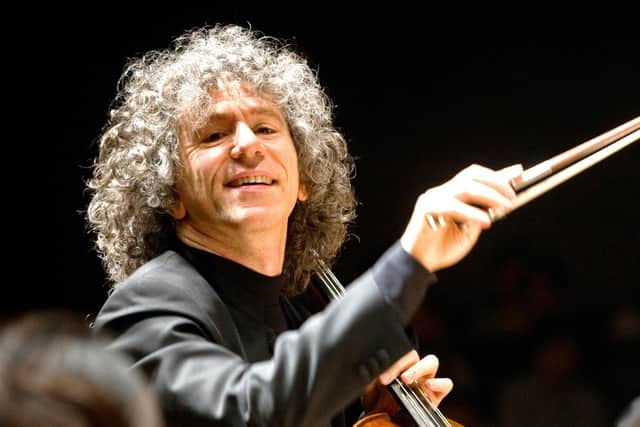Music review: SCO, Maxim Emelyanychev & Steven Isserlis, Queen's Hall, Edinburgh


SCO, Maxim Emelyanychev & Steven Isserlis, Queen’s Hall, Edinburgh ****
Composer Béla Bartók, so the story goes, was ensconced in the Alpine villa of his wealthy patron and so immersed in writing his 1939 Divertimento – which formed the propulsive climax to the Scottish Chamber Orchestra’s energising concert under Principal Conductor Maxim Emelyanychev – that he didn’t even realise how close Europe was to war. Something similar might be said of the SCO’s concert itself, a haven of calm and life-affirming art a world away from the day’s devastating events for many, no doubt, though maybe, for some, that very separation may have been slightly disconcerting.
Advertisement
Hide AdAdvertisement
Hide AdNonetheless, Emelyanychev’s Bartók was a thing of no little wonder, mined for all its darkness and turmoil, but goaded on with impetuous energy in its driving folk rhythms and catchy tunes. It was quite remarkable just how alive Emelyanychev was to Bartók’s switchback moods and sudden swerves of direction, and the SCO strings brought a brittle clarity to the work’s densely woven lines.
Beforehand, who would have thought the concert’s least-known piece by its least-known composer would make for its biggest hit? Jean Françaix’s 1987 Dixtuor (or Dectet, for a mini-orchestra of ten) could have come straight from Paris in the 1920s, and Emelyanychev’s players made a brilliantly compelling case for its jaunty tunes and irrepressible fun. Quite understandably, it went down a storm. SCO principal flautist André Cebrián (check out his Scotsman Session) was beautifully unforced and delicate, with even a touching sense of vulnerability, in the many flute solos of the opening Debussy Prélude à l’après-midi d’un faune, which Emelyanychev caressed into being from his sensitive players. Equally sensitive, though also shot through with rugged determination, was cellist Steven Isserlis in Saint-Saëns’s First Cello Concerto. He drove it ever forward with big musical personality and a gleaming, constantly shifting tone, which he also put to revelatory use in his meaty encore of Fauré’s Élégie, which offered the concert’s moment of sombre reflection.
A message from the Editor:
Thank you for reading this article. We're more reliant on your support than ever as the shift in consumer habits brought about by coronavirus impacts our advertisers.
If you haven't already, please consider supporting our trusted, fact-checked journalism by taking out a digital subscription at https://www.scotsman.com/subscriptions